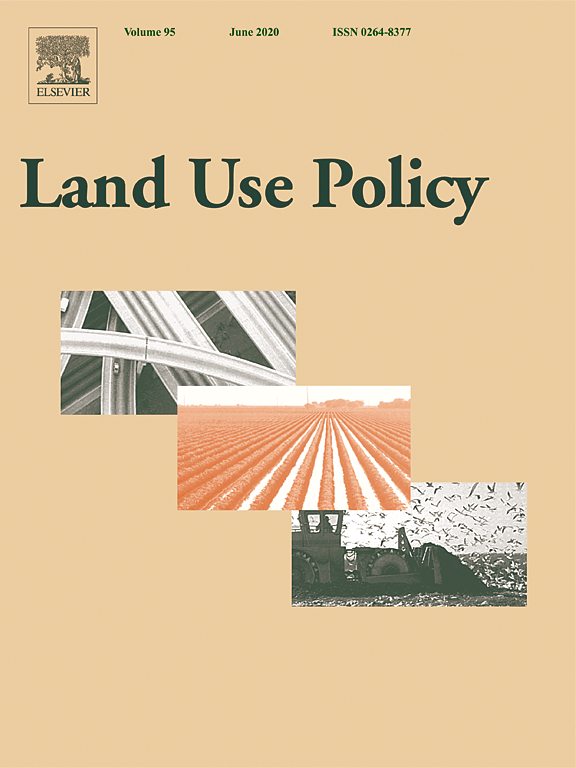Location
Land Use Policy is an international and interdisciplinary journal concerned with the social, economic, political, legal, physical and planning aspects of urban and rural land use. It provides a forum for the exchange of ideas and information from the diverse range of disciplines and interest groups which must be combined to formulate effective land use policies. The journal examines issues in geography, agriculture, forestry, irrigation, environmental conservation, housing, urban development and transport in both developed and developing countries through major refereed articles and shorter viewpoint pieces.
Land Use Policy aims to provide policy guidance to governments and planners and it is also a valuable teaching resource.
ISSN: 0264-8377
Members:
Resources
Displaying 201 - 205 of 279Design of a decision support tool for visualising E. coli risk on agricultural land using a stakeholder-driven approach
Enabling knowledge exchange between scientists and decision-makers is becoming increasingly necessary to promote the development of effective decision-support tools (DSTs) for environmental management. Participation of stakeholders in the design process beyond a basic level of consultation is essential for promoting trust in modelled outputs and accelerating eventual uptake of resulting tools and models by end-user communities. This study outlines the development of a DST to visualise and communicate the spatial and temporal patterns of E.
Sustainable recommendation domains for scaling agricultural technologies in Tanzania
Low adoption of sustainable intensification technologies hinders achievement of their potential impacts on increasing agricultural productivity. Proper targeting of locations to scale-out particular technologies is a key determinant of the rate of adoption. Targeting locations with similar biophysical and socio-economic characteristics significantly increases the probability of adoption. Areas with similar biophysical and socio-economic characteristics are referred to as recommendation domains (RDs).
The EU’s ecological focus areas – How experts explain farmers’ choices in Germany
Ecological Focus Areas (EFAs) have recently been introduced as key element in the greening of the EU’s Common Agricultural Policy. In 2015, farmers across the EU have implemented EFAs for the first time. Data for German federal states indicate a strong variance in EFA decisions with an overall dominance of catch crops, nitrogen fixing crops and fallow land – two of which bear limited benefits for biodiversity conservation. This article explores how experts explain EFA choices.
The ecosystem approach, ecosystem services and established forestry policy approaches in the United Kingdom
A series of approaches have been proposed for natural resource management and biodiversity conservation in recent decades. In the important forestry sector, two of the most dominant policy paradigms have been multi-purpose forestry and sustainable forest management. The Convention on Biological Diversity, amongst other transnational commitments, added the ecosystem approach and its related idea of ecosystem services to this succession which is increasingly becoming the basis for natural resource management, including in the United Kingdom (UK).
Urban parks: Visitors’ perceptions versus spatial indicators
Urban green spaces and their role in the quality of life of residents have been studied across multiple disciplines, based on empirical measurements or qualitative studies – however, the relation, and its strength, between spatial indicators of urban green spaces and visitors’ perceptions of green spaces are less known.



